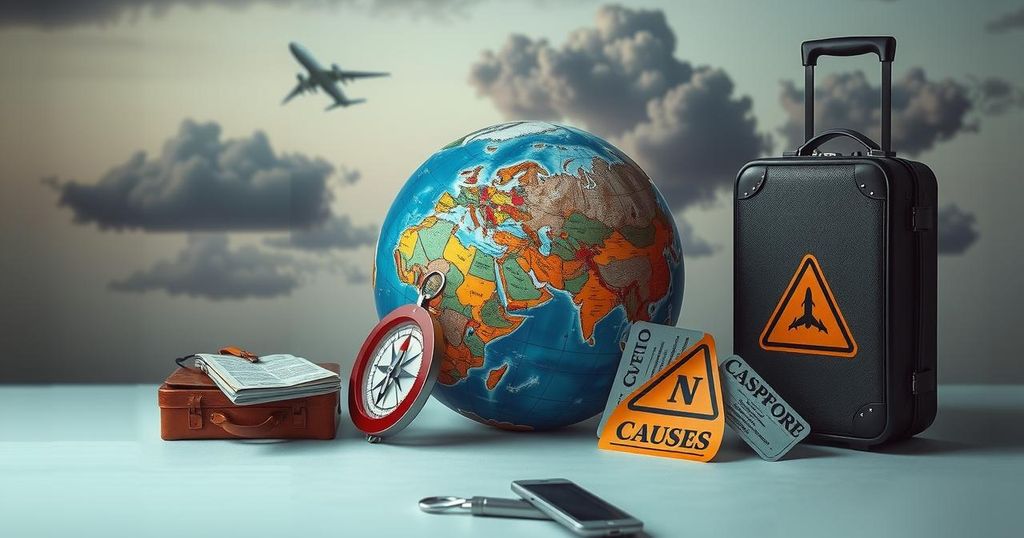Yemen has been placed on the US “Do Not Travel” list alongside Russia, Iran, Iraq, Lebanon, Myanmar, Syria, and Mali due to severe security risks. This advisory impacts the global tourism sector, leading to potential disruptions for travel companies and local economies. Travelers are urged to reassess plans and prioritize safety amidst heightened risks in these regions.
Recent developments in international travel advisories indicate that Yemen has been officially added to the United States’ “Do Not Travel” list. This designation groups Yemen with other nations such as Russia, Iran, Iraq, Lebanon, Myanmar, Syria, and Mali, which are deemed to present severe security threats due to concerns such as terrorism, civil unrest, kidnappings, and armed conflict. The advisory serves as a warning to US citizens about the risks associated with traveling to these areas.
The impact of Yemen’s addition to this advisory is likely to reverberate throughout the global tourism sector. Travel companies may avoid these destinations altogether, and airlines could alter their routes in response to safety concerns. Economies reliant on tourism in regions listed may experience significant hardship, leading to decreased revenues and potential job losses across various sectors, including hospitality and travel services.
Yemen’s designation does not come as a surprise given its ongoing civil war and multiple terrorist threats that have plagued the nation for years. The closure of the US Embassy in Sana’a since 2015 further highlights the lack of consular support for American citizens, making travel to Yemen particularly precarious. The rising instability in Lebanon, Myanmar, Syria, and Mali has compounded concerns about safety and security in the region.
Travel warnings not only affect tourists’ willingness to visit these countries but also jeopardize the livelihood of many who depend on tourism-related employment. The designation can lead to a near-complete halt in travel to these regions, effectively distancing them from the global tourism market. Airlines may be forced to curtail operations, while cruise lines are likely to cancel stops in ports deemed dangerous due to the risks posed by regional unrest.
The broader implications of being on the “Do Not Travel” list include diminished travel insurance options. Many providers may refuse coverage for trips to these areas, presenting an additional financial hurdle for travelers who might have still considered visiting despite the risks. Consequently, recovery for countries on this list can be prolonged, as negative perceptions often linger even after conditions improve.
For individuals with upcoming travel plans, it is critical to reassess intended destinations, prioritize personal safety, and remain informed about the intricate landscape of international travel advisories. As security threats heighten globally, travelers are urged to consult the US Department of State’s latest Travel Advisory before making any commitments to ensure their safety and well-being during their journeys. The designation of countries, including Yemen, reflects ongoing instability that can dramatically affect travel decisions for years to come.
The inclusion of Yemen on the US “Do Not Travel” list, alongside several other high-risk nations, underscores the escalating security threats faced by travelers today. This advisory indicates potential disruptions in the tourism sector and raises significant challenges for businesses and travelers alike. It is imperative that individuals prioritize their safety and carefully evaluate travel plans in light of these advisories, staying informed to navigate the complexities of global travel effectively.
Original Source: www.travelandtourworld.com






